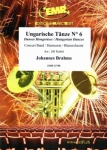Shop Auswahl
Unterkategorien
Kategorien
Willkommen zurück!
Zuletzt angesehen
Arrangeur:
Ruggeri, Guido Besetzung:
Blasorchester & Bariton
Genre:
Klassik • Solostücke • Transkriptionen Produktart:
Partitur • Stimmensatz In 1830 Paris a penniless group of young artists leads a carefree life. It is Christmas Eve and, in a cold attic, the painter Marcello is painting a picture with his friend the poet Rodolfo. From the window they see the smoking chimneys of Paris while their chimney is off: they have no firewood to burn. The only possibility for some fire is burning a poem written by Rodolfo. Marcello and Rodolfo are joined by two other friends, the philosopher Colline and the musician Schaunard. When it is almost evening, they decide to go party at the Cafe Momus. Rodolfo still lingers a bit at home to complete an article for a newspaper when he hears a knock at the door. It is Mimì, the young neighbor, who asks to enter in order to rekindle her candle, but, once entered, the girl feels ill. As she recovers she wants to return to her home, but she realizes that she has lost the key. Rodolfo and Mimì kneel down in the darkness to look for the key. Rodolfo finds it, but he promptly hides it in his pocket to spend some time with the neighbor and get to know her better. While looking for the key, Rodolfo’s hand touches that of Mimì. "Che gelida manina, se la lasci riscaldar" (What a frozen little hand, let me warm it for you) is one of the most famous of Puccini’s arias. Rodolfo and Mimì tell each other "who they are and what they do" and then decide to get together with Rodolfo’s friends at the cafe. La Bohéme was performed for the first time in 1896 at the Teatro Regio in Turin, under the direction of a young orchestra conductor: Arturo Toscanini. The audience success obliged critics, who were initially hostile, to review their assessment of the opera and align it with the general public consent.
Folgende Optionen können gewählt werden um diese Ausgabe zu konfigurieren:



